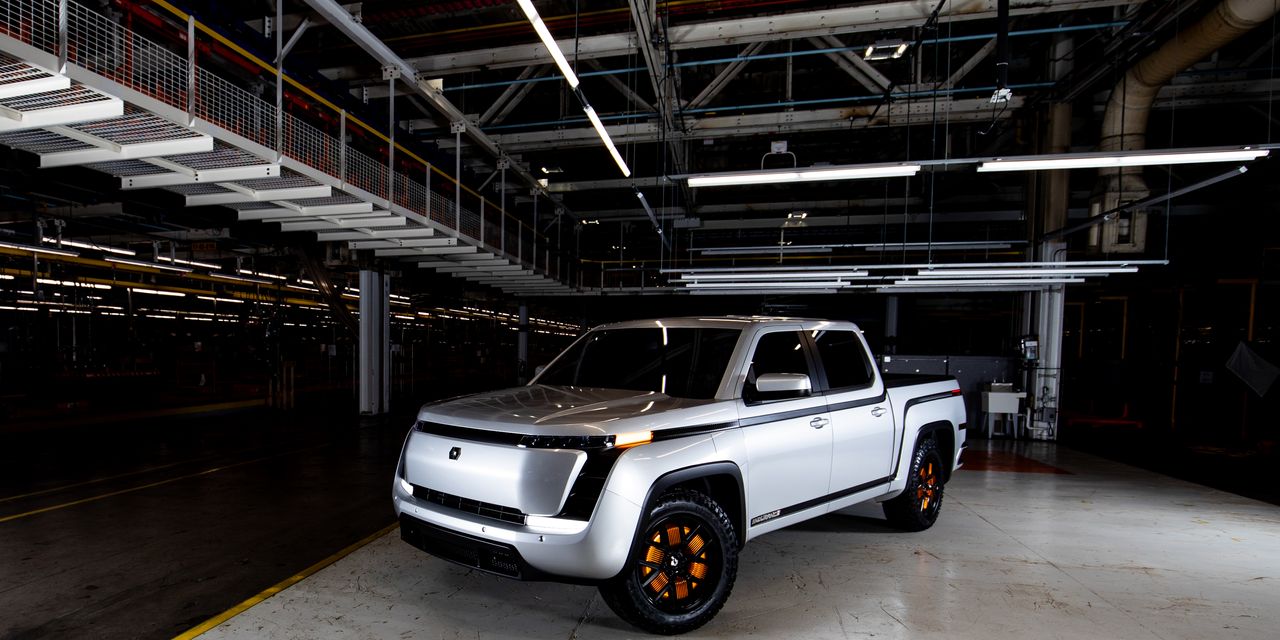Lordstown Motors
has filed for bankruptcy after a partnership with
Apple
partner
Foxconn
went sour. It’s a dramatic move that highlights the importance of capital, cars, and strong partnerships for electric-vehicle start-ups.
Lordstown
(ticker: RIDE) said it was filing for Chapter 11 bankruptcy protection after a deal with
Hon Hai Precision Industry
(2317.Taiwan), which is better known as Foxconn, fell through. Along with the restructuring, Lordstown said it was suing entities connected with Foxconn for fraud and breach of contract.
“As one of the early entrants to the EV industry, we have delivered the Endurance [pickup truck]…and had subsequently engaged with Foxconn in a purposeful, strategic partnership to leverage this expertise into a broader EV development platform,” said CEO Edward Hightower in a news release. “Despite our best efforts and earnest commitment to the partnership, Foxconn willfully and repeatedly failed to execute on the agreed-upon strategy.”
Foxconn said in an emailed statement that the claims were false and malicious, and the company reserves the right to pursue its own legal action against Lordstown.
Foxconn “has been holding a positive attitude in conducting constructive negotiations with Lordstown Motors,” read part of the statement. “Foxconn originally hoped to continue discussions and reach a solution that could satisfy
all stakeholders, without resorting to baseless legal actions, but so far the two parties have yet to reach a consensus.”
Lordstown declined to comment beyond its press release.
Lordstown stock was down 34% in premarket trading. Now shares are down about 29% at $1.98 in midday trading while the
S&P 500
and
Nasdaq Composite
are up 0.4% and 0.5%, respectively. Lordstown completed a 1-for-10 reverse stock split in May. Shares are trading for essentially 20 cents apiece based on the share count at the start of the year. The company’s market capitalization is about $40 million.
The filing hasn’t completely shaken confidence in shares of other EV start-ups. Shares of
Canoo
(GOEV) were up to start the day, but have are off 3.8%. Shares of
Faraday Future Intelligent Electric
(FFIE) are up 1.5%. Shares of
Nikola
(NKLA), which makes battery and fuel cell-powered trucks, is down 6.2%.
Shares or
Lucid
(LCID) are up 2.1%. They are also being influenced by a $1.8 billion private stock placement with the Saudi Public Investment Fund announced Monday. The deal added about 13% to the shares outstanding, meaning the rest of Lucid’s investors now own less of the company, but capital is more important at this point. It’s expensive to build a car business.
Wall Street projects Lucid will use roughly $10 billion in the coming few years before it becomes consistently profitable. Lucid ended the first quarter with about $4 billion in liquidity. Analysts project profits will come if and when Lucid is generating about $13 billion or $14 billion in annual sales. Projections for 2023 sales are about $1 billion.
Rivian Automotive
stock (RIVN) is down 0.3% in Tuesday morning trading. The company ended the first quarter with almost $12 billion in cash on its books.
The combined market capitalization of Rivian and Lucid is about $25 billion. The combined market capitalization of Lordstown, Arrival,
Faraday,
and Nikola is roughly $1.3 billion. The difference is another illustration that what start-up car companies need is cash—and the ability to raise it.
Lordstown started its journey by buying an Ohio factory from
General Motors
(GM) in 2019 to gear up for production, which it then sold to Foxconn as part of an agreement to cooperate on a series of new vehicles. But production never really got off the ground. The company delivered three vehicles in the fourth quarter of 2022, eventually pausing production to fix quality issues.
Lordsdown went public through a special-purchase acquisition company in 2020. The company raised about $675 million through the deal.
It takes a lot more money than that to start a car company.
Tesla
(TSLA) went through roughly $9 billion before the EV giant became consistently profitable late in 2019—at that point Tesla was selling cars at a rate of roughly 400,000 a year.
Write to Brian Swint at [email protected] and Al Root at [email protected]
Read the full article here




